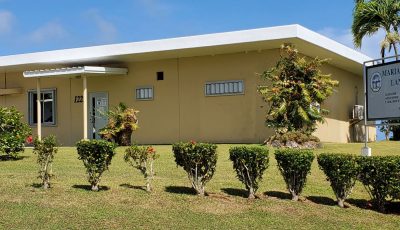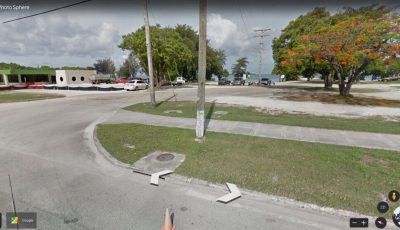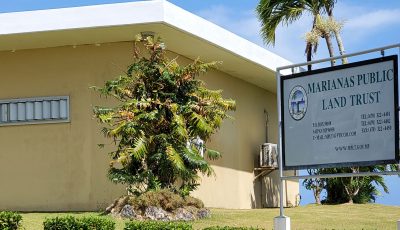Open letter
Buenas yan hafa ada, chairman Francisco M. Borja of the Senate Committee on Resources, Economic Development & Programs:
On behalf of Matua Council for Chamorro Advancement, I humbly take this opportunity this morning to once again reiterate our opposition to the intent of Senate Bill 20-35 authored by Senate President Arnold Palacios. This public policy, as it is written, is centered around and more toward the best interest of investors.
Again, a 75-year lease on public land is too long and definitely against the best interest of the beneficiaries of all public lands as this will deprive the future generations of Chamorro children the opportunity to participate in the disposition and management of their trust land.
We continue to advocate that this type of legislation impacts the core mandate of our policies and disposition of public lands that bore responsibility toward the beneficiaries. We must continue to be cognizant that one of the fundamental values of our agreement with the United States of America under the Covenant §805—which is one of the foundations to our established relationship—is the management and disposition of public lands.
We recognize that effort of the REDP Committee in taking this issue to the beneficiaries on Saipan, including Luta and Tinian, to allow the beneficiaries residing in the respective islands an opportunity to comment on this significant piece of legislation.
However, I believe the committee must also provide public hearings outside the NMI to allow the beneficiaries who are temporarily residing elsewhere the opportunity to provide comments and recommendation to the members of this honorable committee on the intentions of S.B. 20-35.
Again, it is our fervent hope that the members thoroughly and carefully review and evaluate the impact of this legislation on our people, especially on the future generation of beneficiaries of our scarce and invaluable asset – land. We must also be cognizant that even the United States government makes these lands invaluable in securing its national security as espoused by the U.S. Department of Defense policy in the Asia-Pacific region.
The Legislature must allow for the existing public leases to expire as intended. This will allow for better negotiating options by the government on behalf of and in the best interest of the beneficiaries. To allow the existing leases—such as Fiesta Resort, Kanoa Resort, Mariana Resort, Hyatt Regency, Coral Ocean Point, Palms Resort, etc.—to be automatically renewed is an example of exploitation.
We must engage our discussions on what more direct benefits for the beneficiaries can be achieved from these current and future investors of our public lands other than just outright lease.
Additionally, the Legislature must define what is “reasonable compensation.” The language and standard in this bill is vague and broad. This allows DPL and prospective lessee to define what is reasonable compensation. This in itself is blatantly exploitative language in public policy and not protecting the best interest of the beneficiaries.
The Legislature is aware that for decades DPL and MPLT continue to argue to define what is “reasonable expense” that DPL continues to expend millions of dollars of trust funds in support of its “administrative expense,” and what is “reasonable” by DPL to transfer to MPLT for investments on behalf of and in the best interest of the beneficiaries. This scenario has become a contested issue, including the most recent definition on what should and should not be transferred to MPLT (e.g., settlement monies from the DPL vs Kan Pacific/IPI). This is a typical example of exploitation and against ensuring the best interest of the beneficiaries of public lands.
It is our advocacy intent that when we oppose public policy, we also provide for recommendations. As such the following are some areas of recommendation for the members of the REDP committee and the Legislature to consider:
1. Revisit the language in the public land leases on “assignment” provisions. This provision has been exploited in the last decade and more obviously pervasive in the recent public land lease assignment transactions. Public policy should instead remove this provision and revert it to DPL for disposition of the land.
2. Revisit language on DPL’s appraised value at “not less than 10 percent” when executing public land leases. That public policy should ensure that appraised value of public land lease “should not be less than 90 percent of the appraised value.” And if there is no sufficient economic valuation on the respective public land, then public policy must ensure the greatest amount possible for the land in such language “should not be less than $100 per square meters.” As we have witnessed, public land leases have been assessed merely 10 cents per square meters on a 30,000 square meters of public land in Obyan, a culturally sensitive site and land for possible future economic development.
3. Revisit the language that allowed DPL to make radical changes to public land policies and regulations on the treatment of public land through only 120 days of administrative rule making. This should define what can be done administratively and legislatively (i.e. management and disposition of our 150 feet shoreline and what type of land can be assessed a parking facility land lease fee, etc.). This abuse of authority was most obvious in the recent disposition of public land enumerated in the March 28, 2017, administrative rule that is now effective on July 28, 2017. DPL should not be allowed to reduce its public information to a three-sentence notice in the media and without ample time for input because a 30-day comment period is grossly insufficient.
4. The Legislature (with comments from the beneficiaries) must define what is “reasonable administrative expenses” to expend trust monies, and must submit DPL’s budget to the Legislature for appropriation, the same as any department and agency of the government. It should not be reduced to “for information purposes only.”
5. The Legislature must repeal Public Law 15-2 because this is what’s enabling DPL to abuse and mismanage public lands—resources that are in trust on behalf of the beneficiaries. Decision-making should not be reduced to two individuals, the DPL secretary and governor. The Legislature must put back the governing board as it did with the Commonwealth Healthcare Corp.
6. DPL must ensure transparency and accountability in the expenditure of trust monies. The Legislature must ensure that DPL provides a platform for the beneficiaries to access information on its expenditure—such as capital purchases, information on the need for professional staff and administrative staff—to ensure DPL’s annual program objective and policy is consistent with its mission and purpose.
In closing, here is a scenario or a foresight of S.B. 20-35 if this legislation becomes law this year. It would mean that a Chamorro child born in 2017 would not have the opportunity to participate in the management and disposition of their trust land until 2092 or have attained their 75th birthday—if they outlive this longer lease term and are not suffering from early state of dementia and/or Alzheimer to make prudent and reasonable decisions. It is critically important that engaging the stakeholders to define the current problems is the way to create positive solutions.
I remain humble and look forward for the consideration of this honorable committee to disapprove S.B. 20-35 and embark on further public engagements to discuss positive options to this proposed bill to reach a comprehensive legislation that will ensure greatest protection and benefit for the generations of Chamorro children, including your grandchildren who are ultimately the beneficiaries of public lands.
Liana M.S. Hofschneider
President/founding member
Matua Council for Chamorro Advancement



























